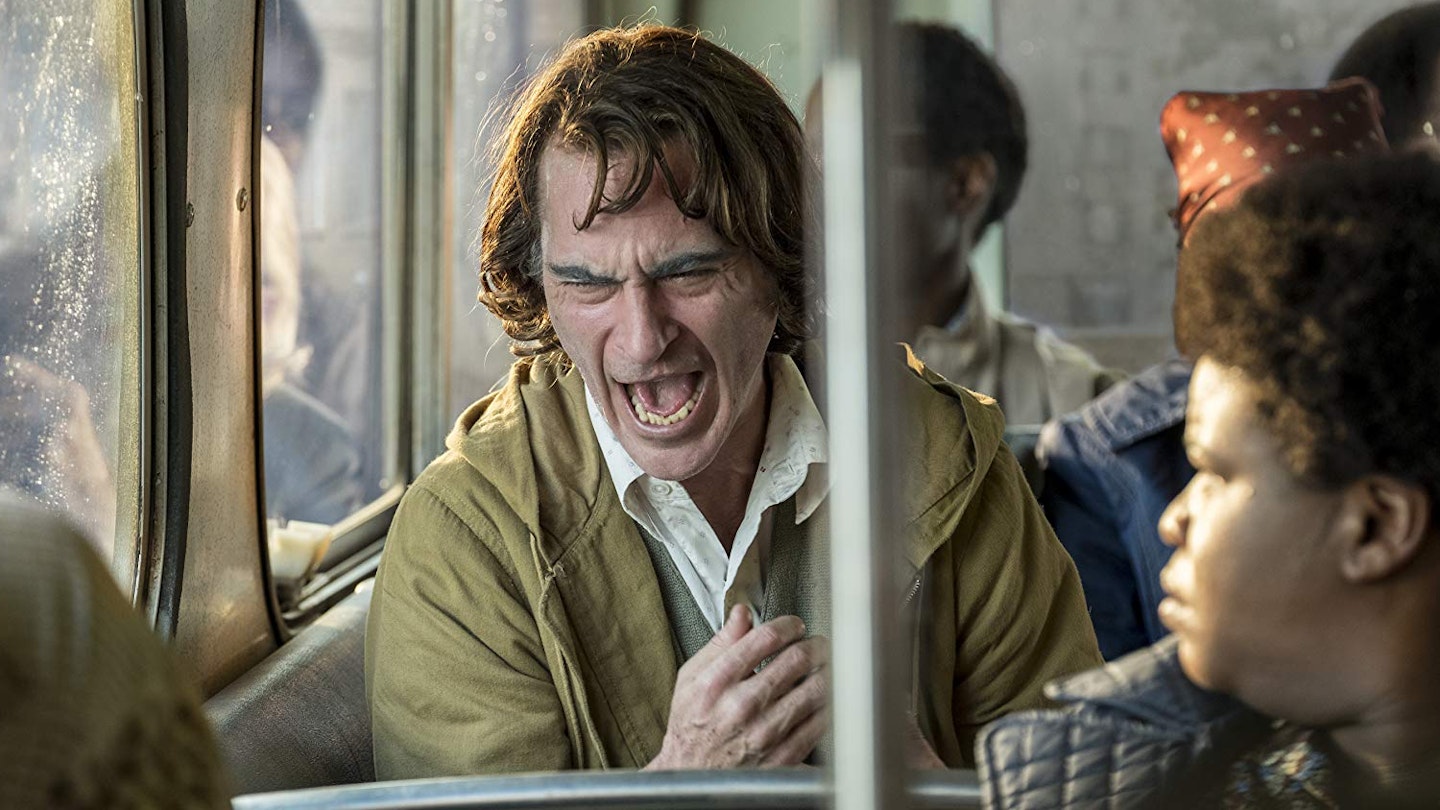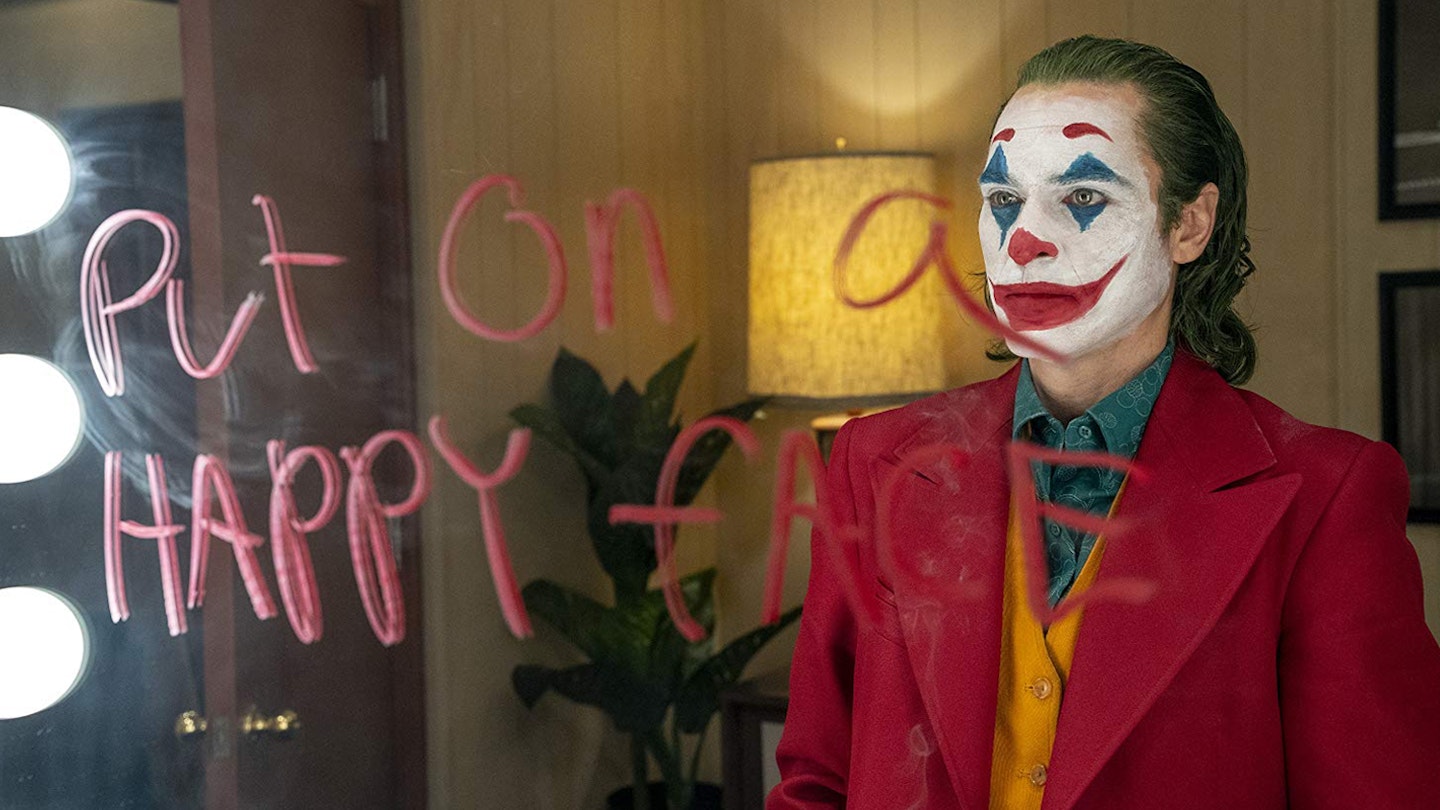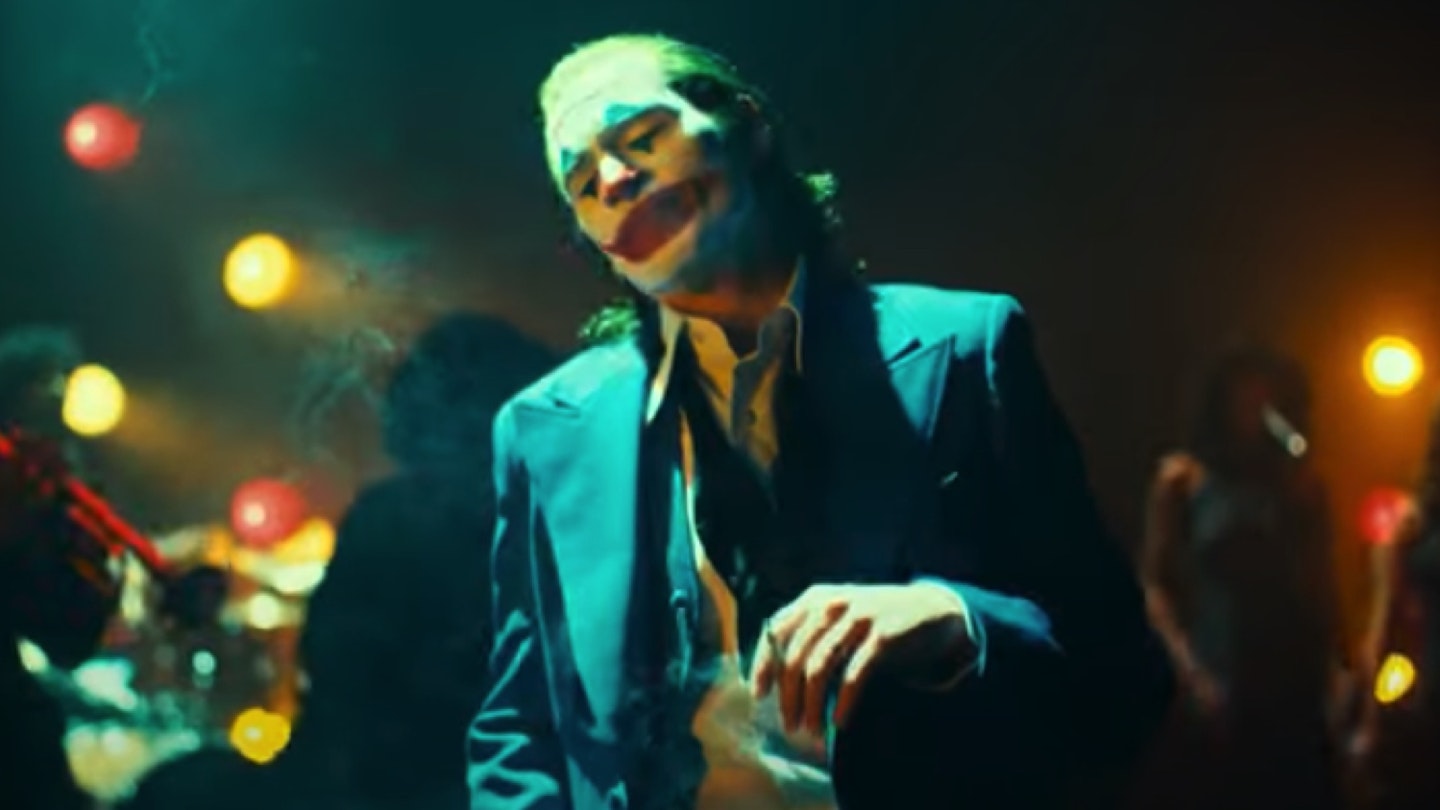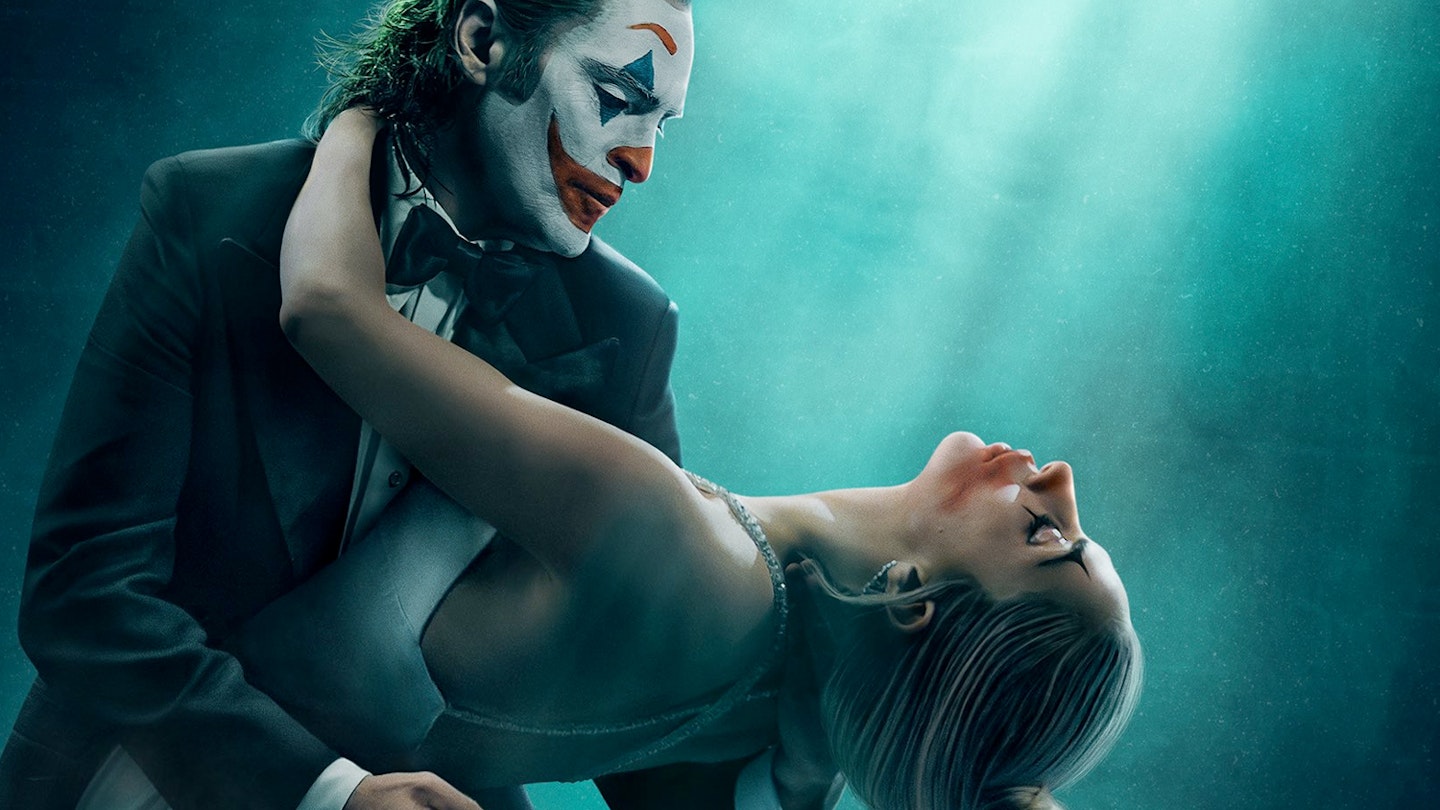1981.in Gotham City. The rich are getting richer and the poor are getting poorer. There’s a garbage strike, rats rampaging in the piled-up trash, parts of the city are no better than slums and Arthur Fleck, troubled professional clown and wannabe stand-up comedian, sits in front of a mirror, slowly painting his face. He attempts to smile and resorts to holding the corners of his mouth up in a grin that stretches from ear to ear. A single tear rolls down his cheek unnoticed, pulling his make-up with it. So begins Joker. There’s not a costume or burst of CGI in sight. Just a man. A sad clown.
Arthur is one of life’s victims, one of life’s “freaks”. He’s beaten-up, mocked, abused. He’s all too familiar with the taste of blood in his mouth. But he’s not just a loner or misunderstood; he can’t engage with the world at all. Everyday existence is simply impossible as the rules and codes that structure a society – even one as broken and busted as Gotham – remain unknowable to him. He stands outside of the world instead, partly due to a condition which causes uncontrollable laughter (often in the worst situations), his eyes thick with pain and sadness as another laughing fit overcomes him and the world retreats yet further.

“I just don’t want to feel so bad anymore,” whispers Arthur, who’s also on seven different types of medication and has been in the system for most of his life. A system that now has no resources or time for him. A desperate whisper that you know won’t be heard by anyone. That simply signifies the beginning of both a descent and his path to becoming the Joker. This is ultimately what Joker is: an origin story. One that touches only ever so lightly on what has come before in the DC Universe.
It’s a character and a movie that’s liberated, entirely. Free to be whatever and whomever it choose.
This could, particularly in the current climate, be viewed as a lament for outsiders and the ignored. That’s too simple and Joker does anything but deliver you easy answers. It’s a sad, chaotic, slow-burn study of someone who isn’t visible; who doesn’t even exist to the world around them. But your empathy, sympathy even, isn’t guaranteed, and it begins to dissolve as Arthur somehow moves even further to the edges. This is, we mustn’t forget, the story of how a villain was made. But what writer/director Todd Phillips and co-writer Scott Silver (8 Mile, The Fighter) have written into life is the Joker as a character. What they and the film is interested in is the mental, moral, emotional, physical make-up of the man who became the Joker.
As Arthur/Joker, Joaquin Phoenix is astonishing. Phillips has said he had a picture of the actor above his screen when writing the script and it’s a belief that has paid off. Phoenix inhabits Arthur: having lost weight for the role, he looks thin, frail, hungry. Shadows carve out his exposed bones. His physicality is precise — the way he moves, shuffles, runs, sits, smokes, shrinks. His usual intensity is on full display and it’s captivating, even overwhelming in moments. Comparing him to Heath Ledger and Jack Nicholson feels like a nonsense: this is a Joker we’ve never seen — in many respects it isn’t the Joker, it’s Arthur.
This is a deliberate consequence of stepping away from the source material. Phillips has said that though elements were drawn from 1988 graphic novel The Killing Joke (in which the Joker is an unsuccessful stand-up), the film doesn’t follow the comic books. A bold move for a universe with such an ardent fan base, but it’s the film’s greatest asset. Not only does it, and the character, sit completely apart from the rest of the DC Cinematic Universe, but it stands apart from comic book movies entirely (even The Dark Knight, as grounded as it was). It’s a character and a movie that’s liberated, entirely. Free to be whatever and whomever it choose.
While this is Phoenix’s film, Frances Conroy is quietly devastating as Arthur’s mother Penny, and Zazie Beetz, as neighbour Sophie Dumond, while arguably underused, brings vital humanity to her scenes with Arthur. The most talked-about piece of casting was obviously Robert De Niro as late-night TV host Murray Franklin. Phillips has made no secret of his love for The King Of Comedy and it’s a sprinkle of magic to see Rupert Pupkin become Murray Franklin.
Mention must be made of Joker’s cello score by Hildur Guðnadóttir — mournful, dark and fractured — and the cinematography by Lawrence Sher. In his hands, Gotham is alive as a flawed, brutal, broken-hearted character in its own right. Oppressive and oppressed, with a glimmer of light that never truly gets in. It throbs at the very heart of the film, waiting for what is destined to come. And the two things entwine perfectly as Arthur dances between the light and the shadows, each bone visible and sharp as the strings swell and scratch.








